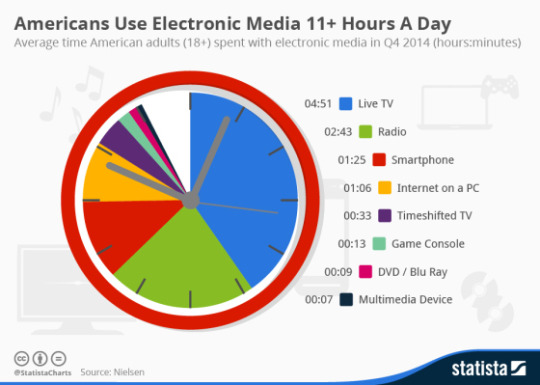Your words matter.
In business — especially online — people get to know us first by what we say. They generate a first impression of us almost immediately.
And if your words aren’t conveying what you want them to, the results can be devastating.
But this isn’t just my opinion; the way words affect us and the people we communicate with is well documented by science, and there are quite a few factors that will determine how people view you based on the words you choose.
Your reading level
If you come from a technical or corporate background, it might be a good idea to check the reading level of your writing. You can put any text into Readability-Score.com and it will spit out the reading level. You don’t really need to understand much about the scores; just be aware that if your writing comes out at a 12th grade reading level or higher, you’re probably going over the heads of a lot of casual Internet readers. That website will also tell you the average length of your words and your sentences.
Some other tips:
- Use simple words. If your readers have to reach for the dictionary, they probably won’t. And avoid jargon at all costs — remember that you are an expert in your field, but your readers probably aren’t. (Words That Work)
- In addition, using complicated words to try to make yourself seem smarter… doesn’t work.
- Use short sentences. They tend to be easier to remember and understand. (Words That Work)
The Hemingway App analyzes your text to help make your writing clearer and more concise. Specifically, it will highlight long sentences that need to be broken up, long words, and passive voice. Very useful!
Using big words to make yourself sound smarter doesn’t work. Find out what does.
Click To Tweet
Your pronouns:
Believe it or not, whether you say “you,” “I,” or “we” has a big impact on how you are perceived:
- Powerful people don’t tend to say “I” very much; less powerful people do. Make of this what you will.
- Using “I” tends to increase people’s perception of your authenticity. (Source)
- Using the word “we” creates an instant feeling of familiarity in your reader. (Source)
- Using “one” is very formal and distancing, so be careful of that.
- Likewise, your gender (and the gender of your readers) may dictate how you write. Women tend to talk more and tell more stories, whereas men like to get right to the point. For a bit of fun, you can run your writing through the Gender Guesser, which will guess your gender based on your word choices.
Here’s a fun copywriting trick you can apply to almost all your copy: When discussing a negative situation or outcome, use “we” to include yourself and the reader in a broader group, but when discussing a positive outcome, use “you” to make the reader feel positive. So, for example, “Sometimes we don’t pay attention to what we eat and we can consume too many calories, but keeping a food journal can help you can make healthier choices.”
Copywriting tips backed by SCIENCE!
Click To Tweet
Your message
Your message is based on your big why, but it’s also about things like your branding, your tagline, your customer’s pain points, and so on. When working on your message, remember:
- Be consistent. That’s why I advocate developing a brand lexicon (part of my Voice Identification ProcessTM) of words and phrases that you use often, so people will come to associate them with you. (Words That Work)
- Be aspirational. Your message should be something people want to hear (You can do it!) as opposed to something they don’t want to think about (It will be hard!). (Words That Work)
- Be clear and decisive. Which has more impact, “I think…” or “I know…” When you use qualifying words like think, hopefully, and just you’re giving yourself an out. You’re saying, I may or may not stand behind this. Look for ways to be more decisive and you will come across as more of an expert.
Your diction
Diction is just a fancy way of saying “word choice.” But the words you choose are incredibly important — and tell your reader a lot about you, even if it’s subconsciously.
- Do you swear in your brand copy? If you do, it might actually increase your persuasiveness if you use it at the beginning or end of a statement, according to a social influence study. But it doesn’t have any effect on your credibility (positive or negative).
- But, people who avoid swearing are generally rated as more agreeable. (Source)
- The sound and texture of your words and phrases matter. Alliteration, onomatopoeia, repetition, combining short, punchy words or long mellifluous ones to create a rhythm. Even when you’re writing prose, strive for a poetry to your language. (Words That Work)
- Using the same words that your readers use is a powerful tool. This study shows that negotiators did better overall when mimicking their counterpart’s words. And this study could predict which speed daters would go out based on whether or not their language matched. In short, sounding more like your readers is likely to make them want to go out with you.
- Words that express balance or nuance (“except,” “but,” “however”) indicate a higher level of truthfulness as well as complexity of thought. (Source)
If you’re interested in finding out what words you use most often, you can use Wordle to create a word cloud from your blog, ebook, or any other writing sample, and it will show your most frequently used words bigger and bolder than the others.
Even when writing prose, strive for poetry in your language.
Click To Tweet
Your personality
It turns out, people can tell a lot about your personality just by reading what you write. I’m not a huge advocate for trying to be something you’re not, but you can influence how people perceive you by paying attention to your word choices.
- If you use a lot of negative words or irony, you may be judged neurotic. (Source)
- Extraverts tend to use more positive words. (Source)
- If you talk a lot about achievements, you’ll be seen as conscientious. (Source)
- Using words related to giving or getting insights is associated with high achievement. (Source)
- Your crutch words (the words you fall back on and use too much) can reveal a lot about you, according to this article. I use “so” way too much, which isn’t on the list, but I also say “seriously” some (and my former editors would attest that I’m way too fond of exclamation points!!).
The Watson Personality Insights service can analyze your personality through text samples. It’s pretty fun! I analyzed my home page copy, and it said, “You are social, generous and imperturbable. You are cheerful, assertive, and respectful of authority. Your choices are driven by a desire for modernity. You consider both achieving success and taking pleasure in life to guide a large part of what you do. You seek out opportunities to improve yourself and demonstrate that you are a capable person. And you are highly motivated to enjoy life to its fullest.” And I certainly hope that describes me!
What are your words saying about you?
Click To Tweet
So how do your words describe you?
If you discover any insights about your writing with these resources, let us know in the comments below! I’m fascinated by this stuff and I’d love to hear.
And if you’d like to get a sneak peek at the Voice Identification Process, I’m doing a version of it LIVE on a free webinar next week! Click here to sign up.
Also, a major hat-tip to Eric of Barking Up the Wrong Tree, a fascinating blog that parses the latest scientific research into articles that are actually useful and easy to read. Many of the insights I discovered were through his blog, and are cited accordingly.
Photo Credit: erin m via Compfight cc
This article was syndicated from Business 2 Community: What Do Your Words Say About You? The Science of Brand Voice
More Sales & Marketing articles from Business 2 Community:






